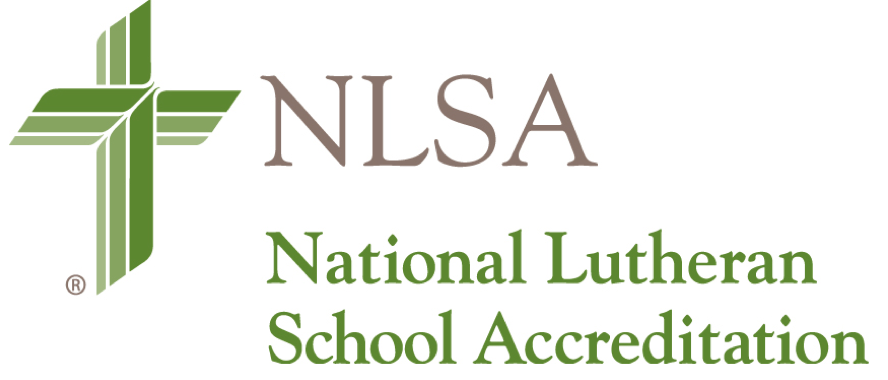MEG Language: Chinese Language Partner
https://www.alsalaska.org/meg - MEG review or curriculum resources
https://www.youtube.com/watch?v=pb5HtFosbvY - 4 minutes review of the MEG Program
https://meglanguages.com- MEG website
Why Learn Mandarin Chinese?
Relevance: The sheer size of China commands attention. It is the world’s third-largest country and is home to 1.3 billion people, or one-fifth of the globe’s population. It is the world’s second-biggest economy after the United States and a major geopolitical player on the world stage.
Communication: Mandarin is currently spoken by nearly one-fifth of the world’s population. Mandarin speakers can be found in Mainland China, Taiwan, and diasporic Chinese communities throughout Southeast Asia, North and South America, and Europe. Because China is of one of the five permanent members of the United Nations Security Council, Chinese is also an official UN language (along with Arabic, English, French, Russian, and Spanish).
A Unique Skill: Chinese, for all its growing importance, still remains a rare language skill among Americans. In 2013, just over 60,000 American college students enrolled in a Chinese language program. In committing to study Chinese, you can look forward to being equipped with a still uncommon and highly valued second language skill.
Career Opportunities: Graduates with proficiency in Mandarin are well positioned for jobs in business, diplomacy, engineering, science, law, philosophy, political science, technology, finance, tourism, translation, teaching, and much, more. In fact, a seminal study of languages in the U.S. jobs market found that Chinese is not only the most-requested language after Spanish by employers, but the language that has experienced the greatest growth in demand. Between 2010 and 2015, the number of job postings requiring Chinese language skills increased by 230 percent! In addition to working in a cross-border capacity, people who speak Chinese can support companies, nonprofits, and government agencies that market to and serve Chinese-speaking communities right here at home. The United States has a significant Chinese-speaking population: approximately 3 million U.S. residents speak Chinese at home, almost two-thirds of which have limited English proficiency. Ultimately, China will play a major role in world affairs in the future and to learn this language and culture will help any student in their future endeavors.
U.S. Government: Like other non-Western languages that are deemed critical to U.S. national security, Chinese has been designated a Critical Needs Language. Numerous U.S. government agencies such as the Department of Defense, the Department of State, the NSA, USAID, Department of Commerce, and FBI actively seek employees proficient in Chinese for a wide range of jobs. Some of these agencies provide scholarships for students pursuing Chinese language studies as well as pay incentives for employees who bring Chinese skills to their job.
Surprising Facts: Chinese has a relatively uncomplicated grammar. Unlike French, German or English, Chinese has no verb conjugation (no need to memorize verb tenses!) and no noun declension (e.g., gender and number distinctions). For example, while someone learning English has to learn different verb forms like “see/saw/seen,” all you need to do in Chinese is just to remember one word: kan. While in English you have to distinguish between “cat” and “cats,” in Chinese there is only one form: mao. (Chinese conveys these distinctions of tense and number in other ways, of course.)The basic word order of Chinese is subject — verb — object, exactly as in English. A large number of the key terms of Mandarin Chinese (such as the terms for state, health, science, party, inflation, and even literature) have been formed as translations of English concepts. You are entering a different culture, but the content of many of the modern key concepts is familiar.
https://www.alsalaska.org/meg - MEG review or curriculum resources
https://www.youtube.com/watch?v=pb5HtFosbvY - 4 minutes review of the MEG Program
https://meglanguages.com- MEG website
Why Learn Mandarin Chinese?
Relevance: The sheer size of China commands attention. It is the world’s third-largest country and is home to 1.3 billion people, or one-fifth of the globe’s population. It is the world’s second-biggest economy after the United States and a major geopolitical player on the world stage.
Communication: Mandarin is currently spoken by nearly one-fifth of the world’s population. Mandarin speakers can be found in Mainland China, Taiwan, and diasporic Chinese communities throughout Southeast Asia, North and South America, and Europe. Because China is of one of the five permanent members of the United Nations Security Council, Chinese is also an official UN language (along with Arabic, English, French, Russian, and Spanish).
A Unique Skill: Chinese, for all its growing importance, still remains a rare language skill among Americans. In 2013, just over 60,000 American college students enrolled in a Chinese language program. In committing to study Chinese, you can look forward to being equipped with a still uncommon and highly valued second language skill.
Career Opportunities: Graduates with proficiency in Mandarin are well positioned for jobs in business, diplomacy, engineering, science, law, philosophy, political science, technology, finance, tourism, translation, teaching, and much, more. In fact, a seminal study of languages in the U.S. jobs market found that Chinese is not only the most-requested language after Spanish by employers, but the language that has experienced the greatest growth in demand. Between 2010 and 2015, the number of job postings requiring Chinese language skills increased by 230 percent! In addition to working in a cross-border capacity, people who speak Chinese can support companies, nonprofits, and government agencies that market to and serve Chinese-speaking communities right here at home. The United States has a significant Chinese-speaking population: approximately 3 million U.S. residents speak Chinese at home, almost two-thirds of which have limited English proficiency. Ultimately, China will play a major role in world affairs in the future and to learn this language and culture will help any student in their future endeavors.
U.S. Government: Like other non-Western languages that are deemed critical to U.S. national security, Chinese has been designated a Critical Needs Language. Numerous U.S. government agencies such as the Department of Defense, the Department of State, the NSA, USAID, Department of Commerce, and FBI actively seek employees proficient in Chinese for a wide range of jobs. Some of these agencies provide scholarships for students pursuing Chinese language studies as well as pay incentives for employees who bring Chinese skills to their job.
Surprising Facts: Chinese has a relatively uncomplicated grammar. Unlike French, German or English, Chinese has no verb conjugation (no need to memorize verb tenses!) and no noun declension (e.g., gender and number distinctions). For example, while someone learning English has to learn different verb forms like “see/saw/seen,” all you need to do in Chinese is just to remember one word: kan. While in English you have to distinguish between “cat” and “cats,” in Chinese there is only one form: mao. (Chinese conveys these distinctions of tense and number in other ways, of course.)The basic word order of Chinese is subject — verb — object, exactly as in English. A large number of the key terms of Mandarin Chinese (such as the terms for state, health, science, party, inflation, and even literature) have been formed as translations of English concepts. You are entering a different culture, but the content of many of the modern key concepts is familiar.
- Currently Mandarin Chinese is spoken by over 1 billion people around the world, about one fifth of the global population;
- Each year more and more students around the world whose mother tongue is not Mandarin are studying it with enthusiasm and success. If they all can learn it, so can your child!



